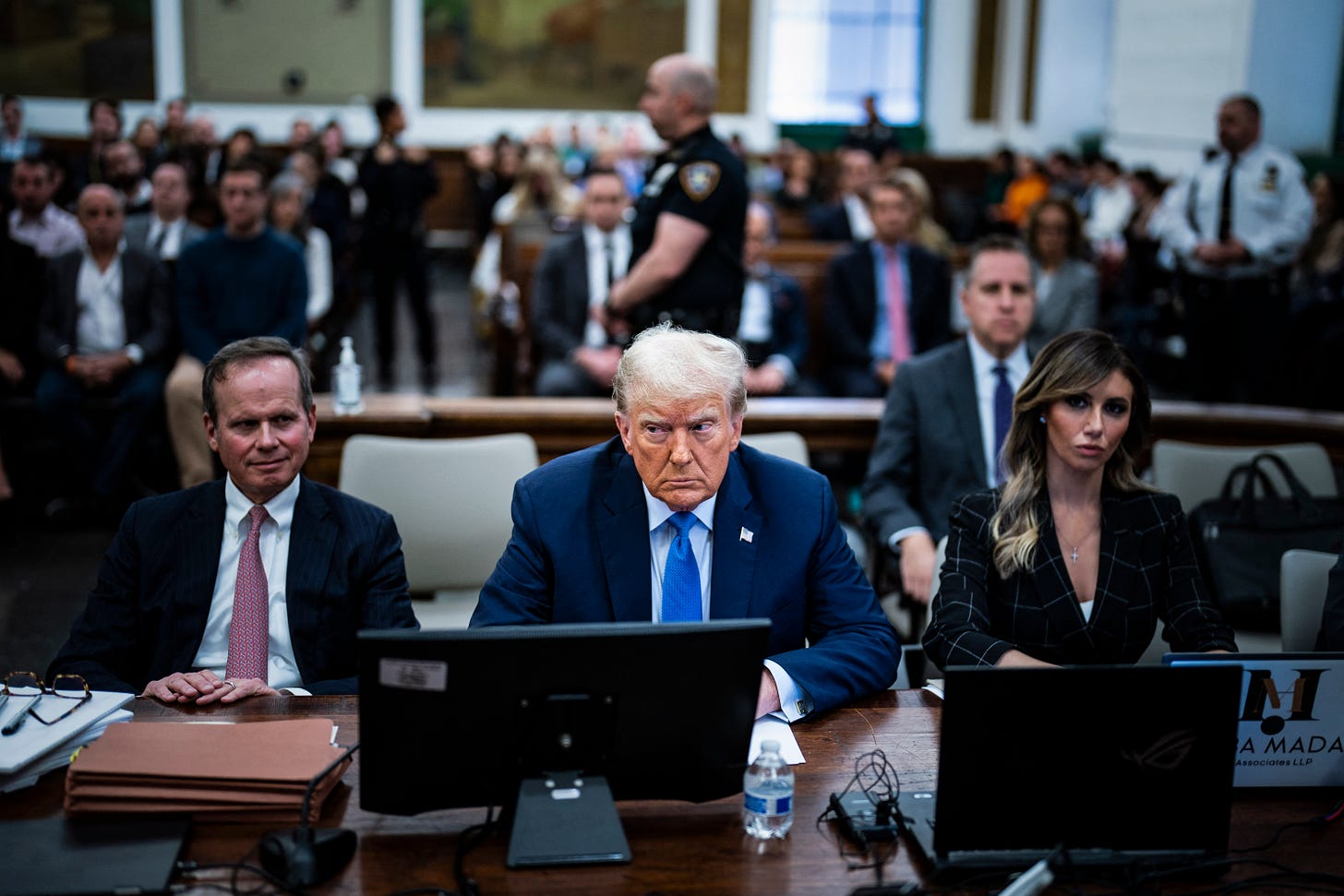Five Things to Know About the Trump Fraud Trial as the Defense Kicks Off
Huge stakes for Trump’s businesses—and his ego.

DONALD TRUMP’S DEFENSE TEAM on Monday began its rebuttal to New York Attorney General Letitia James’s case against him on civil fraud charges. Here are five things to know about the state of play.
1. Mountains of evidence
So far, the state’s case has entailed six weeks of trial and twenty-five witnesses, including Trump’s former corporate controller, Jeffrey McConney, who testified that although some of the inflated or deflated valuations in Trump’s properties were errors, others were intentional—such as unbuilt mansions on his Seven Springs estate in Westchester County, New York, that didn’t exist but were valued at $161 million, adding to Trump’s stated net worth over several years. McConney also said that he didn’t act alone and discussed the valuations with Allen Weisselberg, Trump’s longtime chief financial adviser, who told McConney that if he refused to cooperate, he could lose his job. Weisselberg, who separately pleaded guilty to criminal tax crimes, testified that Trump reviewed the financial statements before they were final.
2. “Everybody does it!”
Trump’s lawyer Christopher Kise has indicated that the primary defense will be that there’s no victim here because the banks still made money on the loans. He will also argue that differing valuations for real estate property is normal and that the banks were invited by Trump to do their own due diligence, which was their responsibility. “Anyone committing fraud does not tell the other side, ‘Please do your own analysis,’” Kise said.
Under the New York fraud statute, however, the attorney general does not have to show that there were actual victims—only that Trump and the other defendants (who include his two sons) committed ongoing fraud. The judge overseeing the case, Justice Arthur Engoron, already rejected these arguments in an order granting the attorney general summary judgment, finding that Trump engaged in illegal fraud, and ordering the cancellation of a slew of his business certificates filed under New York’s General Business Law.
3. Follow the money
Trump’s defense team reportedly plans to call expert witnesses to testify that Trump’s financial statements did not factor into the loan deals—but the state already called an expert witness who testified that Trump made at least $168 million in interest as a result of fraud involving loans that Trump personally guaranteed.
4. What’s in a name?
Trump himself has also been arguing to the press that the judge failed to properly factor the winning Trump brand into the valuations he used to justify his summary judgment ruling against Trump. But the record shows that the judge has considered Trump’s 2013–2020 financial statements showing that a 15 or 30 percent premium was added to seven golf clubs based on the Trump brand.
5. Playing dumb and playing the victim
Eric and Donald Trump Jr. will dig into their “I don’t recall” defense and “I-relied-on-my-accountants” defense, attempting to refute the case that they had knowledge and intent to defraud, but emails and other documents the state produced during their testimony undermined those assertions. For his part, Trump will do what Trump does, playing victim to the media and his donor base, with the assumption that winning the 2024 presidential race is the best way to stave off his financial losses and, in the four criminal cases he faces, jail time. He’s probably right.
As for this trial, Trump’s legal team knew the battle was already lost when the judge ruled in September that he committed fraud in his financial statements. What’s left for decision is whether Trump must disgorge upwards of $250 million in ill-gotten gains and whether he will be permanently barred from running businesses in New York. Coupled with the cancellation of his organization’s business certificates, the outcome of this civil case could be catastrophic for the Trump brand—and Donald Trump’s ego—if Engoron’s rulings are upheld on appeal.
By that time, Trump’s first criminal trial could already be underway in federal court in Washington, D.C. over his involvement in the January 6th insurrection and the broader attempt to overturn the 2020 election. That trial is set to begin just one day before the March 5 “Super Tuesday” primaries. A whopping loss in the civil trial will undoubtedly put the former president on extra edge.





